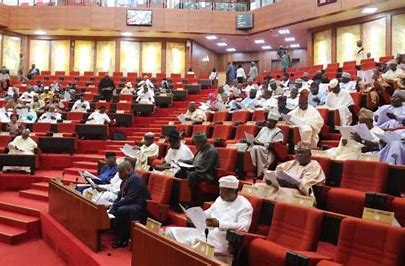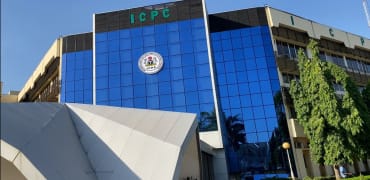National Assembly Passes N54.99 Trillion Budget
National Assembly Passes N54.99 Trillion Budget
By Achimi Muktar
In a landmark decision, the National Assembly has officially passed the N54.99 trillion budget for 2025, marking an increase of N749.99 billion over the initial N54.2 trillion proposal by President Bola Ahmed Tinubu. With this approval, the budget is now set to be presented to the President for assent, paving the way for critical economic and infrastructural developments.
What Changed in the Budget?
The revised budget reflects key allocations and adjustments, including the introduction of funding for the newly created Northcentral Development Commission and Southsouth Development Commission, both of which were previously unaccounted for. Additionally, the Independent National Electoral Commission (INEC) received a significant boost, increasing its allocation from N40 billion to N100 billion.
Budget Breakdown at a Glance
The approved budget of N54,990,165,355,396 is distributed as follows:
Capital Expenditure: N23.96 trillion
Debt Service: N14.31 trillion
Recurrent & Non-Debt Expenditure: N13.06 trillion
Statutory Transfers & Deficit to GDP: N3.64 trillion (1.52% of GDP)
Why the Increase?
President Tinubu initially submitted a N49.7 trillion budget but later requested an increase to N54.2 trillion, citing an additional N4.2 trillion in revenue available to the government. The Senate and House of Representatives Appropriations Committees further reviewed revenue sources, leading to the final adjustment to N54.99 trillion.
Senator Solomon Adeola and Rep. Kabiru Bichi, who presented the committee's findings, emphasized that increased government revenue from agencies such as the Federal Inland Revenue Service (FIRS) and Nigerian Customs Service (NCS) played a significant role in justifying the expansion.
Major Budgetary Priorities
Health Sector Intervention: Following the United States' decision to suspend medical aid to Nigeria for malaria, polio, HIV, and tuberculosis, the government allocated $200 million (N300 billion) to mitigate the impact.
Strengthening Key Institutions: Additional funding was allocated to INEC, EFCC, ICPC, NDLEA, DSS, Ministry of Foreign Affairs, and the Armed Forces to enhance national security, governance, and anti-corruption efforts.
Infrastructure and Development: The budget prioritizes ongoing capital projects and ensures funding for critical ministries and agencies.
Experts Weigh In
Chairman of the Senate Finance Committee, Sani Musa, praised the budget passage, highlighting the collaborative efforts between the National Assembly and the Executive. He emphasized that improved revenue collection strategies helped identify and recover additional funds, reducing reliance on external borrowing.
Musa also reassured Nigerians that economic recovery is gradual but on the right path, citing the oversubscription of Nigeria’s $2.2 billion Eurobond as a strong indicator of investor confidence.
What’s Next?
With the budget now awaiting President Tinubu’s assent, attention shifts to implementation. The government has extended the capital expenditure deadline for the 2024 budget to June 2025, allowing for a smoother transition into the new fiscal year.
Meanwhile, FCT Minister Nyesom Wike confirmed that over 90% of the N1.1 trillion 2024 budget for the Federal Capital Territory (FCT) has been utilized, with major infrastructure projects nearing completion.
Final Thoughts
The passage of the N54.99 trillion budget sets the stage for Nigeria’s economic and developmental agenda in 2025. While the increase in spending raises concerns about debt servicing, the emphasis on infrastructure, healthcare, and institutional strengthening signals a commitment to long-term national growth.
All eyes are now on President Tinubu as he prepares to sign the budget into law. Will this budget deliver on its promises, or will it fall short like many before it? Nigerians will be watching closely.


















